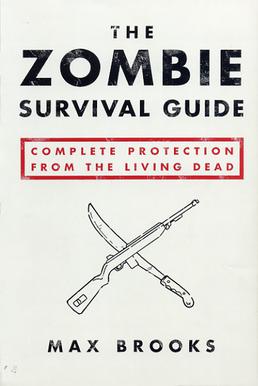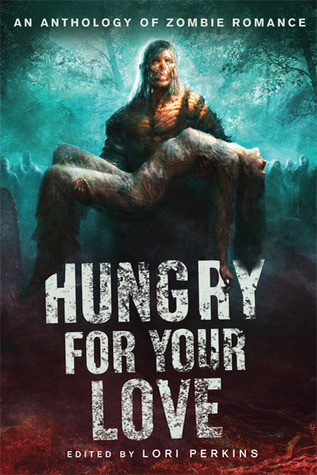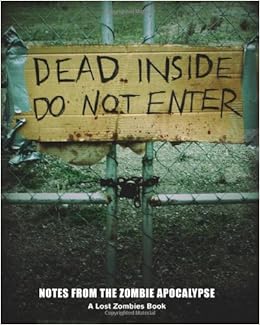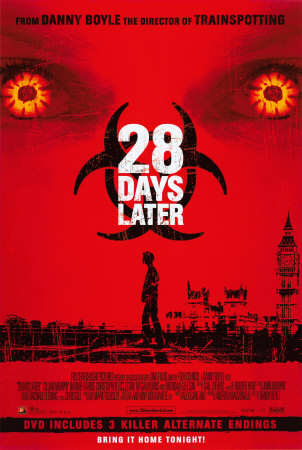It should probably come as no
surprise, given the pervasiveness of their popularity across virtually every
other form of media, that zombies have become an increasingly popular subject
for advertisers as well. For decades (or longer), advertisers have been jumping
on every bandwagon or trend that comes along in an effort to associate their
product with the next big thing (sure, there are plenty of companies who
consistently attempt to create the next big thing themselves, but to me they are
a distinct minority). For zombie enthusiasts and theorists, this appropriation
of zombies by the mainstream media apparatus offers a clear affirmation of the cultural
capital of the zombie figure. However,
to those of us who see in zombies something more than the sum of their
dismembered parts, these commercials can also seem like an outright
bastardization of the form. While both sides are worth discussing, it is this last part that interests me most. If
zombies operate as floating allegories (and I think they do)
that can be made to represent virtually anything, how is it that so many ad
agencies still seem to get them so utterly, and often ridiculously, wrong? And what are we to make of the fact that a figure that has so long been considered a commentary on consumer culture should then be employed as a marketing tool to elicit the same urges it is critiquing (although, to be sure, this same question could be asked of big budget zombie blockbusters - I'm looking at you World War Z - as well).
I'm going to take a moment to acknowledge that I have no rights to any of the commercials I am about to share on this blog, nor have I procured permission to reproduce them. I think I'll be in the clear though (Fair Use, what!). First, I am in no way profiting from them monetarily. Two, I am reproducing these ads for the purposes of criticism, comment, research, and scholarship of sorts. Third, and probably most importantly, I'm likely safe because, even though I'm going to talk shit about many of these ads, the companies that paid to create them all want their ads to be seen by as many eyes as possible. That is, their presence on my blog should in no way effect the potential value and market of the copyrighted work. Indeed, though I may be highly critical of their efforts, I'm still very much helping them transmit their message (alas, we are all just cogs...). With that being said, in the unlikely event that you are one of these companies - corporations are people now - and you'd like me to take your commercial down, I will.
Now, for the most part, zombie ads seem to fail because they don't make any sense whatsoever. When I was trying to recall commercials for this entry, one of the first that came to mind was a funny(ish) ad for Starburst that featured a talking zombie on a bus. What I remembered most about it, even more than the product it was supposed to be selling, was how utterly unnecessary the zombie was for what the ad was trying to accomplish. Take a look.
Absolute nonsense. And I don't think Starburst is particularly likely to take any offense to me labeling their ad nonsense because that was its whole point. Otherwise they probably wouldn't have decided on the kilted Scotch-Korean spokesman. Beyond that, my problem here is that the zombie is entirely gratuitous, and only barely a zombie at that. Of all the traits that define a zombie, Bored Douche zombie only really fulfills the living dead part. There's no indication that he consumes flesh or that his condition is transmittable, and he clearly isn't mindless. The contradiction that he would seem to embody is shared by a great many other horrific figures. Vampires, ghosts, revenants, golems, mummies, etc. are all living dead constructs that could have served just as capably. Really, some might have even been a little more apt for this particular ad because, you know, they're actually supposed to talk. Similar to many of the other ads that I will be discussing, this zombie is not in any way materially necessary to the "narrative" of the commercial. Its presence is predicated solely on the zombie's present popularity. And, for the life of me, I can't figure how this is possibly supposed to sell any candy. In fact, it seems to gesture in the exact opposite direction. The ad is really two ads in one: one that continues the Scotch-Korean "contradiction" angle (being Scotch-Korean is not a contradiction, for the record) and another that mocks and belittles the existing Starburst marketing gimmick. Starburst put out a commercial making fun of the primary slogan of most (at that time) recent Starburst commercials. And not in a self-aware, ironic kind of way. How's that for a contradiction?
Barely zombies simply for zombies' sake appears to be a fairly common approach for many advertisers. Instead of crafting a coherent campaign around the accepted conventions of the zombie trope, a lot of these ads only require the zombie to show up and look the part. No carnage. No contagion. Just a walking corpse that says his (spokeszombies are almost exclusively male; still a little squeamish about the idea of female corpses, are we?) lines in a remarkably human way without threatening or harming anyone. There is a Sprint spot that, like the Starburst ad, is fairly amusing but that, also like the Starburst commercial, would quite probably have been just as amusing had the zombie been replaced by almost literally anyone or thing. A talking cactus, or hat, or mop head would have been as relevant to the Sprint ad as the Slightly Suave zombie. More troubling however, to me at least, is that unlike the Starburst spot, the Sprint ad seems to ask customers to align themselves with the zombie. Humans and zombies necessarily operate as opposed binaries (though this binary is quite often unsettled and problematized). Here, though, the zombie is positioned not as the Other, but as the Self. Zombies want unlimited minutes. I want unlimited minutes. I am a zombie. Not a great plan, Sprint. Whenever possible, your product should avoid making me associate myself with a mindless, flesh-eating corpse.
To be continued...


























